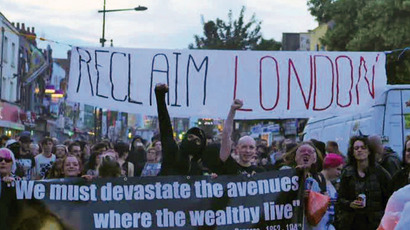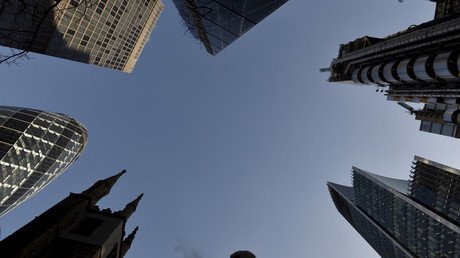Bulldozing London’s beloved Latin American market will ‘ethnically cleanse’ area, traders tell RT

The planned demolition of Britain’s largest Latin American market to make way for luxury shops and apartments puts hundreds of livelihoods at risk and will tear the heart out of the community, a campaign group warns.
London Mexico Solidarity (LMS), part of a wider coalition to stop the demolition of the ‘El Pueblito Paisa’ market, told RT that shutting the community hub would be disastrous, as it supports people who would otherwise be left “out on the streets.”
Multinational property developer Grainger wants to level the market and surrounding area, which consists of up to 120 shops, to make way for a modern shopping center and high-end properties.
Haringey Council issued a Compulsory Purchase Order (CPO) back in October 2016 to push through the redevelopment plans.
Traders, however, rejected the order.
In response to the outcry, the Department for Communities and Local Government launched a public inquiry to determine the fate of the 30-year-old market.
The inquiry is ongoing, with a verdict expected in February 2018.
Besides threatening the jobs of its traders, the local Latin American and Hispanic community will also lose an “important point in the city where they gather,” a spokesman for LMS told RT.
“The market is important because it provides space for different groups to come together,” he said.
“It keeps their culture and language alive and transmits this culture and language to other generations.”
Local resident Pam Isherwood said Grainger’s plans would see the market, dozens of shops, and at least 50 homes razed to the ground. None of the 440 properties to be built in their place will be social housing.
Under the redevelopment plans, the market would be relocated to ‘Apex House 23’, a 23-story tower under construction nearby.
According to Isherwood, a member of Wards Corner Community Coalition (WCCC), the tower “sticks out like a sore thumb” in a residential area where buildings are no higher than three stories.
Stallholders told Minority Rights Group (MRG) International in February that moving to Apex House 23 would run them out of business.
Isherwood said higher rents in the tower would be “way beyond what people will be able to pay.”
“I will put serious money on the table that in five years’ time there won’t be more than half-a-dozen Latin American traders,” she said.
Although she agrees investment is needed to modernize the area, Isherwood believes restoration, rather than demolition, is the way forward.
Breaching human rights
Even the United Nations has raised concerns about the “threat to cultural life” posed by the proposed demolition of the market.
“If granted, the Compulsory Purchase Order under review would result in the expulsion of the current residents and shop owners from the place where they live and earn their livelihoods, and would have a deleterious impact on the dynamic cultural life of the diverse people in the area,” a group of United Nations human rights experts said in July.
It also told the government the market represents much more than just a business area for traders and local families, as it is a “dynamic cultural place” where different groups can relate and interact.
“The destruction of the market and scattering of the small businesses to other premises would not only seriously affect the economic situation of the people working there, but it would also make this cultural life simply disappear,” the UN experts said.
‘No say’
Isherwood warned the market will “lose its soul” if it is forced to relocate, as traders will be holed up in “concrete structures” that are “tightly controlled” by authorities, and will have no say on how things operate.
“[The market] will go from being an organic, living, breathing thing into being in a concrete shell where they [traders] will have very little influence on what happens there.”
Patrick Rey, who has been working in the market for almost 14 years, said it feels like an “ethnic cleansing” is taking place. He denounced authorities for failing to listen to workers.
He claimed the 10-year battle for the market has been “unfair and biased,” as Haringey Council, along with Grainger, Transport for London (TfL) and London Mayor Sadiq Khan are ignoring the community’s plight.
“Who is left? Who is going to listen to us? Who do you go to complain to?” Rey asked RT.
The only Mayor who tried to help the Seven Sisters’ locals was current Foreign Secretary Boris Johnson.
Lose-lose
However, the market’s traders will not be the only ones affected by the council’s redevelopment plan.
The LMS warns London will lose a fundamental part of its history, as the city’s immigrant communities make a huge contribution to its economy and diversity.
Gentrifying London
The proposed demolition is only the latest example of the rapacious gentrification of the British capital and its historic working-class neighborhoods.
The LMS spokesman condemned the transfer of the shared public space to exclusive private ownership.
While the well-off benefit from the property bonanza, low-income groups are “left behind,” he warned.















